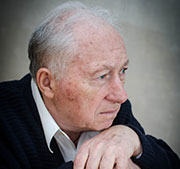- Could Your Grocery Store Meat Be Causing Recurring UTIs?
- Are You Making This Expensive Thermostat Error This Winter?
- Recognizing the Signs of Hypothyroidism
- 10 Strategies to Overcome Insomnia
- Could Artificial Sweeteners Be Aging the Brain Faster?
- Techniques for Soothing Your Nervous System
- Does the Water in Your House Smell Funny? Here’s Why
- Can a Daily Dose of Apple Cider Vinegar Actually Aid Weight Loss?
- 6 Health Beverages That Can Actually Spike Your Blood Sugar
- Treatment Options for Social Anxiety Disorder
Cancer Survivors May Struggle for Years With Mental, Physical Problems


Many U.S. cancer survivors have unresolved physical and mental health issues long after being cured, a new study finds.
One expert wasn’t surprised. “Many oncologists intuit that their patients may have unmet needs, but believe that these will diminish with time — the current study challenges that notion,” said Dr. James Ferrara, chair of cancer medicine at Tisch Cancer Institute at Mount Sinai in New York City.
The new study involved more than 1,500 cancer survivors who completed an American Cancer Society survey asking about unmet needs. More than one-third pointed to physical problems related to their cancer or its treatment.
For example, incontinence and sexual problems were especially common among prostate cancer survivors, the report found.
Cancer care often took a toll on financial health, too. About 20 percent of the survey respondents said they continued to have problems with paying bills, long after the end of treatment. This was especially true for black and Hispanic survivors.
Many respondents also expressed anxiety about the possible return of their cancer, regardless of the type of cancer or the number of years they had survived, according to the study published online Jan. 12 in the journal Cancer.
“Overall, we found that cancer survivors are often caught off guard by the lingering problems they experience after cancer treatment,” study author Mary Ann Burg, of the University of Central Florida in Orlando, said in a journal news release.
“In the wake of cancer, many survivors feel they have lost a sense of personal control, have reduced quality of life, and are frustrated that these problems are not sufficiently addressed within the medical care system,” Burg explained.
And, Ferrara added, “Patients often experience a kind of post-traumatic stress disorder with numerous psychologic, neurologic and physical problems that extend and even intensify beyond the critical five-year milestone.”
The new study demonstrates “that such needs persist at the same level even 10 years after treatment,” Ferrara said. “The medical system is ill-equipped to deal with such problems, and patients may be reluctant to raise them, fearing to seem ungrateful for having survived a terrible disease.”
Burg agreed, saying that doctors need to be honest with patients about the side effects of cancer and its treatment, and that health care providers need to coordinate their efforts to help survivors and their families cope with the challenges they face.
Dr. Stephanie Bernik is chief of surgical oncology at Lenox Hill Hospital in New York City. She said it’s “not surprising” that cancer survivors struggle long after treatment ends.
“Cancer is not only a disease of the body, but it is a disease of the mind, often affecting many aspects of the person as a whole,” Bernik said. “Patients often feel alone and are not sure where to turn for help, and it is important for physicians to be aware of a patient’s needs outside of the direct treatment of the cancer.”
She said the study findings show “how important it is to speak with a patient about all their concerns and for physicians to have a system in place that helps address psychosocial needs of the patients diagnosed with cancer. We have come a long way in treating the patient as a whole, but more work still needs to be done.”
More information
The American Cancer Society has more about cancer survivorship.
Source: HealthDay
Copyright © 2026 HealthDay. All rights reserved.










